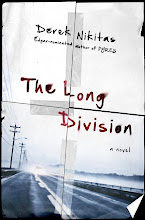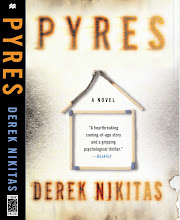E.M Forster’s wrote Howard’s End and A Passage to India. He’s (post)Edwardian, which means early 20th Century. He gets lumped in with the Modernists sometimes because he was writing round the same time as James Joyce and Virginia Woolf, but he’s much more traditionalist (i.e. Victorian). Not much in the way of wacky formal experiments for Forster. He respected wacky formal experiments, even if he didn’t indulge himself.
I’m not being obscure when I chat about Forster. Really. He’s significant. He’s somebody. He wrote this book called Aspects of the Novel. Actually, that’s not true. He delivered a series of lectures about literature called Aspects of the Novel at Cambridge in 1927 and they were collected into this book. He lectured once a week about a different aspect of “the novel,” and what he says has become common currency in creative writing programs.
We learn from Forster that “story” is an unfortunate necessity in fiction writing, an aspect that appeals to mere curiosity. We learn that fiction is really about human beings, and Forster expends a good deal of talk musing on authentic character and the difference between flat and round characters (probably his most notable contribution to the canon of creative writing craft writing, though his ideas have been challenged from time to time, most recently by James Wood in this Guardian article).
We learn that even though novels are about human beings and the truths about human nature and human value that fictional characters exhibit, novels also have a bunch of other stuff that competes with this “pure” depiction of humanity. You can’t just go showing humanity. You’ve got to tell a story, fashion a plot, use language, and exhibit pattern and rhythm. All of these things, in a sense, get in the way of showing character, but they’re what make fiction fiction. Character and form, constant competition. The trick for the writer is to find the balance.
Forster also tells us that every aspect of the novel makes different demands on the reader. We readers know these demands and enjoy them, like good little masochists, so we don’t mind. Story—that is, wanting to know what happens next—makes no real demands; it just appeals to our curiosity. Even a caveman can do story.
The demands come in when character is introduced. Once a writer gives us a character, we readers are expected to engage with that character according to our own human feelings (i.e., empathy) and our sense of human value (i.e., our ethical system). If we have no empathy or ethics, we’re not going to give a shit about fictional characters.
Plot is not story, exactly. Plot is the deliberate fashioning of story in order to emphasize causality. One event causes another, though not necessarily in chronological order. Even in a novel as inane as The DaVinci Code, plot is carefully constructed. In fact, you might argue that some of the most ingenious plotting occurs in novels that are often dismissed for being genre garbage. Why this highbrow scoffing at plot? Because plot is more prone to formula than other aspects—or at least more recognizably so. Because plot comes from the head, not from the heart, like authentic character does. Or so they say.
Anyway, with plot, cues and clues lead us to further revelation and realizations. What happened before the story begins is gradually revealed as the story itself progresses. In that basic sense, two “stories” form a plot (this, by the way, is the basic structure of most mysteries). You have the story that unfolds chronologically from the discovery of the body to the punishment of the murderer. But you also have the other story, often broken out of its chronology and sprinkled throughout the chronological story, of what happened before the body is found—the story behind the murderer’s motivation, the exposition.
Forster says plotting makes demands on the reader’s intelligence and memory, and this makes perfect sense to me. The more plot a book has, the more it demands of our ability to unravel conspiracies and make connections (intelligence) and our ability to remember names, clues and motivations (memory). You can’t be stupid and read James Ellroy. It’s not his complex ideas that hurt. After all, Ellroy’s idea is essentially: everybody’s guilty and we always have been. Instead, it’s the complex structure of his plots: hundreds of characters, dozens of motivations and interlocking crimes and conspiracies.
I read Forster’s Aspects the first time back when I was an undergrad. What I’ve said so far is basically what I came away with, what I figure most folks come away with. Lots of good nuggets of advice, though Forster doesn’t really package them as bits of advice to writers so much as cool stuff to notice about how great books work. Aspects: a time well spent for everybody involved.
But the thing is: Forster adds two “aspects” into the middle of the book that throw his whole treatise into confusion. These aspects are “fantasy” and “prophecy.” He devotes a chapter to each. These chapters are so daunting and difficult, you get an overwhelming urge to dismiss them altogether—concentrate instead on the chapters that made sense. This is exactly what I did when I was an undergrad. I was baffled; I moved on. But now, years later, I feel ready to tackle those two chapters. Not because I want the trivial satisfaction of having understood them (though that’s fun), but because I think Forster might get closer in these two chapters than anywhere else to the real reason good fiction is so powerful and memorable for the reader. The great secret is here, man.
Every craft book you read discusses story, character, plot, pattern and rhythm—just like Forster does. But no book I’ve ever read discusses “fantasy” and “prophecy,” at least not the way Forster does, and not with the same terminology. Lots of craft books and essays cite Forster’s seminal ideas on the more basic aspects of the novel, though I’ve never seen one that mentions these two pesky aspects, “fantasy” and “prophecy”. He devotes two chapters, a whole third of the book, to them. So what’s the big deal?
Well, for one, what he says is not “nugget-like.” You can't take it away and make a rule out of it like: “plot should emphasize causality,” or: “important characters should be round and not flat.” You can’t say: “one should attempt to write fantastically or prophetically” and hope that anyone has a clue what you mean. There’s no prescription here. There’s only Forster noticing that some of the greatest writers in history were doing a little something extra beyond just creating truthful/meaningful characters and fashioning ingenious plots and writing well. He suggests, though he doesn’t ever come out and say it, that we apprentice writers might want to consider this other stuff if we too want our novels to be remembered by posterity (which is not nearly the same as the desire to make it to the bestseller list, mind you).
So what is “fantasy” and what is “prophecy”? Ask two people and you’ll get two different answers. Forster himself is not totally sure, in part because he thinks all great writers are completely unique in their vague exhibition of fantasy and prophecy. Melville does it one way, Joyce another, Emily Bronte yet another. He can’t really define either one, but he knows them when he sees them, much like that congressman and his definition of pornography.
Of the prophet-writer in general (and D.H. Lawrence specifically), Forster admits: “what is valuable about him cannot be put into words.” No amount of logical analysis will help us understand either, because when we read the prophet or fantasist writer we must “lay aside the single vision which we bring to most literature and life . . . and take up a different set of [analytical] tools.” In fact, these new tools aren’t even analytical because logical analysis won’t help us understand fantasy or prophecy.
Fantasy and prophecy sure as hell can’t be taught, at least not in a craft lecture. They can be taught by making apprentice writers read Moby Dick and The Brothers Karamazov and Wuthering Heights and Ulysses and hoping said apprentices imbibe some of the spirit that lingers there (but also make their own versions—no fake, disappointing copycatting).
The problem of defining fantasy and prophecy is also exacerbated by the fact that Forster doesn’t define either word the way we normally would. A “fantasist” writer is not necessarily one who writes fantasy/sci fi/ supernatural horror literature, like J.K. Rowling or Tolkien or Ursula LeGuin or Clive Barker or Anne Rice. Forster’s definition of “fantasy” includes all this stuff, but extends beyond it, into literature that would be considered realistic or “literary,” that would never be placed on a genre rack in the bookstore. His cryptic definition of fantasy: “it implies the supernatural but need not express it.”
Similarly, the prophetic writer is not one who writes about what he believes will happen in the future. Prophecy, for Forster, doesn’t have anything to do with prediction. It doesn’t have anything to do with making any kind of statement at all— forwarding a logical world view. Therefore, prophecy is also not about establishing moral or ethical groundwork. The first sentence of Forster’s prophecy chapter goes, “With prophecy in the narrow sense of foretelling the future we have no concern, and we have not much concern with its appeal for righteousness.” This negative definition cancels out the Jesus image we might get in regards to the prophet: the moral bastion, the sage. That ain’t what he means.
Okay, so we know what fantasy and prophecy are not, but does this help us understand what they are? Nope. Every apprentice writer who reads these two chapters in Aspects will get—if he gets anything at all—a different understanding. Mine is no better than yours, even if I’ve been considering mine for a while. And—at the risk of overstaying my welcome—I’ll wait till tomorrow to take the egomaniacal step of telling you what I think Forster means by “fantasy” and “prophecy.” Or, at least, I’ll tell you what I want him to mean. Isn’t that exciting?



2 comments:
Fantastic essay. I'll be pondering this one for days!
Plus, the tall ships finally sailed into harbour, bearing precious cargo from Amazon. PYRES is next on deck!!
What a wonderful post here. I stumbled onto it this morning on a tangent from your post at Murderati.
I sure hope you get around to writing the follow-up!
In fact, I would LOVE for you to come guest blog at mystic-lit and write it there!
Either way, thanks for this one - it's funny how things so often pop up on our radar when we most need them. It's that kind of week here in the garret.
Post a Comment